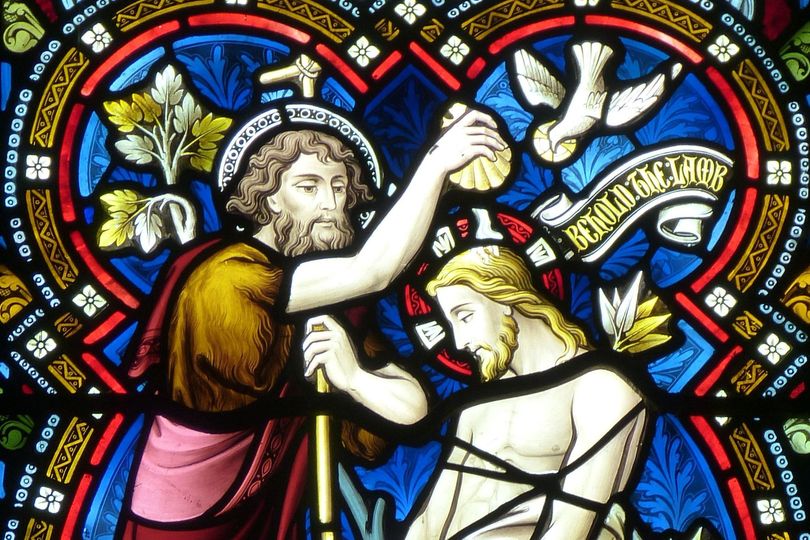
We commemorate the Birth of John the Baptist on 24 June.
Only Luke tells about John the Baptist’s birth. In the other Gospels, Matthew, Mark and John, John the Baptist is already an adult when he comes into the story. He appears as a man of God, a prophet trusted by the people to whom he preaches and baptises. In each of those Gospels, John, who already has a reputation and many followers, points Jesus out to his followers as the Messiah, the one to listen to and he encourages them to follow him.
But Luke starts the story from before John’s birth telling it in tandem with Jesus’s story. First, we hear of John’s conception, and then of Jesus’s conception, then how the two mothers, kinswomen Mary and Elizabeth, meet up. The story continues with an account of John’s birth and naming, followed by Jesus’s birth and naming. Luke is the only Gospel that says that John is related to Jesus. By associating John and Jesus from conception and birth, Luke is highlighting the closeness of the two to one another in God’s unfolding mission. Their birth stories convey images of their future ministries and their wholehearted commitment to God’s kingdom.
In Matthew and Mark, Jesus comes to John for baptism, and it’s then that he learns of his own ministry. After that, John disappears from the story until the news comes of his death. Luke doesn’t actually say that John baptises Jesus and nor does John’s Gospel, but John the Baptist “testifies” to Jesus as the lamb of God, the one to listen to, to follow, to become disciples of.
In each Gospel, John describes himself as preparing the way for Jesus, as a voice in the wilderness setting the scene for the Messiah, for Jesus.
John does not retire when Jesus begins his public ministry — his own ministry is not ended. But he is not in opposition to Jesus. As he says, Jesus must increase and he will decrease. Like Jesus, he continues preaching God’s kingdom zealously. He is not afraid to challenge the scandalous behaviour of leaders reminding them that “every tree… that does not bear good fruit is cut down and thrown in the fire”. And when the people ask him what they are to do, his answer is like Jesus’s: share with those who don’t have enough; collect only the taxes that are owing; be satisfied with their wages — to act with justice and love their neighbour for the love of God.
Like Jesus, John is killed for speaking the truth. Herod imprisoned John for rebuking him publicly. Matthew and Mark tell of his beheading and how his head was given to Herodias’s daughter on a plate. His humiliating death sent shock waves among his followers, but it did not diminish John’s place as a man of God, a prophet, one who encourages us to fix our lives on Jesus Christ and work for God’s mission of justice and love throughout the world.
Ann Gilroy rsj
